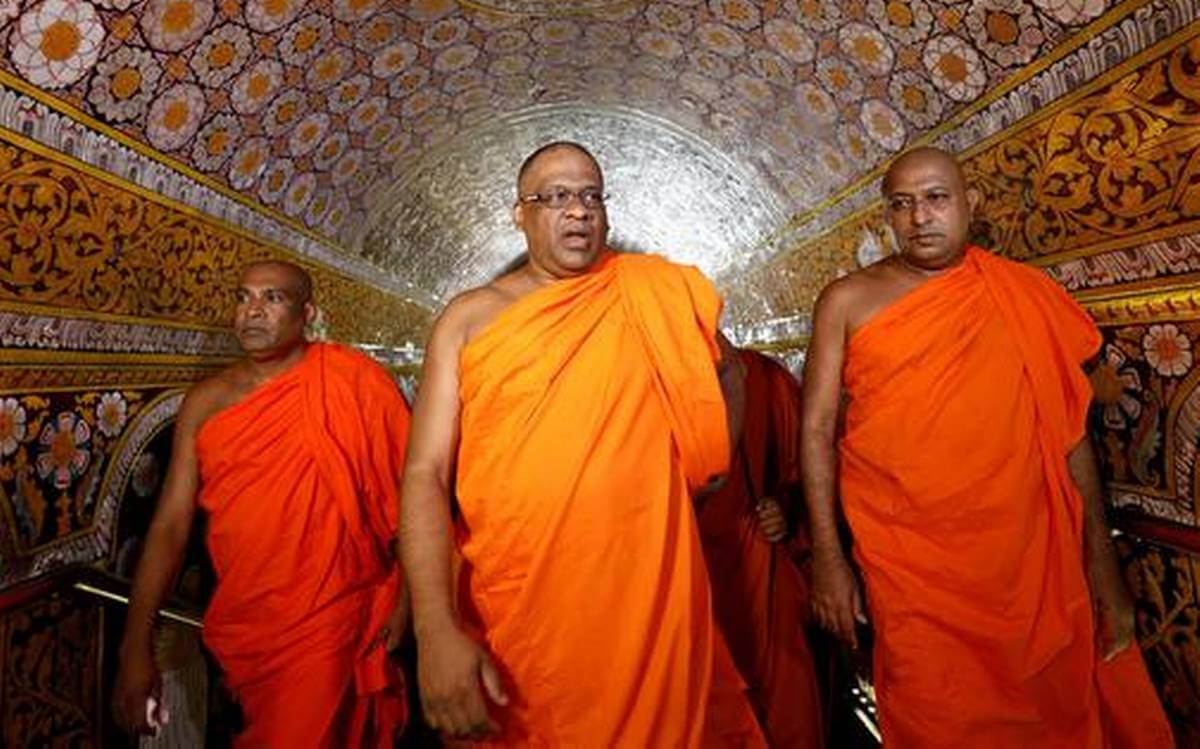Sri Lankan President Gotabaya Rajapaksa has set up a 13-member task force to implement significant legal reforms to bring in a “One Country, One Law” policy. Galagodaaththe Gnanasara, the Secretary General of Bodu Bala Sena, a Sinhalese Buddhist nationalist organisation, will head the committee.
The appointment was made through a special gazette released on Tuesday. The task force must submit monthly reports to Rajapaksa and publish its final recommendations by February 28, 2022. It requires the task force to prepare a draft of legislation that will introduce a uniform set of laws governing religious practices, such as marriage, inheritance, and divorce.
The “One Country, One Law” was a popular slogan used by Rajapaksa during his victorious 2019 election campaign, during which he found significant support from the country’s Buddhist majority. The slogan struck a chord among the country’s Sinhala community, which is growing increasingly concerned about rising Islamic radicalism. The Muslim community has demanded that they be allowed to continue practising Sharia law to govern specific religious practices such as marriage and inheritance. This has been strongly opposed by nationalist groups, who believe it promotes extremism.
The “One Country, One Law” campaign also saw increased support following the 2019 Easter bombings, which resulted in the death of over 270 people. The investigation concluded that the incident was perpetrated by nine suicide bombers who caused a series of blasts in three churches and several luxury hotels. The far-right Islamist National Thawheed Jamaat group, which was reported to have links to ISIS, was blamed for the incident.
The decision to implement the law comes months after the country’s Parliament decided to amend Muslim personal laws. While the country has the Kandyan law and the Thesawalami law, which is practised among the Sinhalese and Tamil speaking communities, the latest reforms mainly target Sharia law in Sri Lanka.
Apart from the legal reforms the government is seeking, the task force’s composition has also attracted significant criticism. While four scholars represent the Muslim minority, the Tamil-speaking minority does not have any representation in the committee.
Gnanasara’s appointment has also raised eyebrows in domestic and international political circles. He is a hardline Buddhist monk who has attracted attention for his vociferous anti-Muslim stand. Moreover, his Bodu Bala Sena group, which translates to “the Forces of Buddhist Power,” was also convicted for inciting anti-Muslim riots in 2013. He has also been convicted and sentenced to six months in prison for threatening the wife of Prageeth Eknaligoda, a political leader who was critical of the Sri Lankan government. However, he was released from custody after being granted a presidential pardon.
Criticising Rajapaksa’s decision, Ambika Satkunanathan, an activist who was also the former Commissioner for Sri Lanka’s Human Rights Commission, called the task force a “farce masquerading as governance/government.” Likewise, opposition leader Shanakiyan Rasamanickam said: “This committee itself is the definition of irony. What is the purpose of establishing a committee if the existing law can’t be implemented correctly? The appointment of a criminal to lead this committee is almost a joke in itself.”
The International Commission of Jurists has also raised concern about the prospective use of the “One Country, One Law” policy to target minorities. It criticised the appointment of Gnanasara and underscored the need to ensure representation for the Tamil community. The Commission tweeted: “The appointment as Chairperson of a person imprisoned for contempt of court & known to be openly violent and racist calls into question the intent behind these appointments.”
The international community has been increasingly concerned about the human rights situation in Sri Lanka since Rajapaksa assumed power in 2019. The brutal civil war, which was fought for 25 years from 1983 to 2009 between the Sri Lankan government and Tamil separatist groups, resulted in more than 100,000 civilian deaths. Human rights organisations have accused the Sri Lankan military of committing crimes against humanity, including indiscriminate shelling, forced disappearances, denial of aid, and sexual violence. However, the Sri Lankan government has repeatedly denied these charges and failed to hold the perpetrators accountable for the atrocities. In fact, Rajapaksa was defence secretary during the civil war while his brother Mahinda was the president.
Recent developments are likely to amplify the criticism against the Sri Lankan administration and their treatment of minorities.
Rajapaksa Appoints Buddhist Nationalist for “One Country, One Law” Vision in Sri Lanka
The Sri Lankan government has controversially appointed a Buddhist monk who is known for his Islamophobic views to implement the “One Country, One Law” principle.
October 29, 2021

SOURCE: THE HINDU
